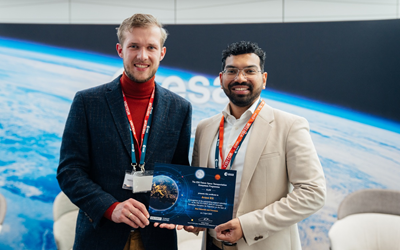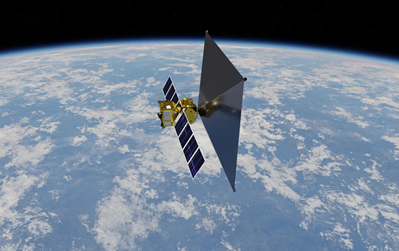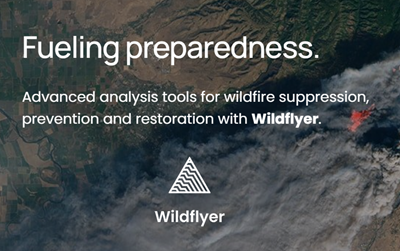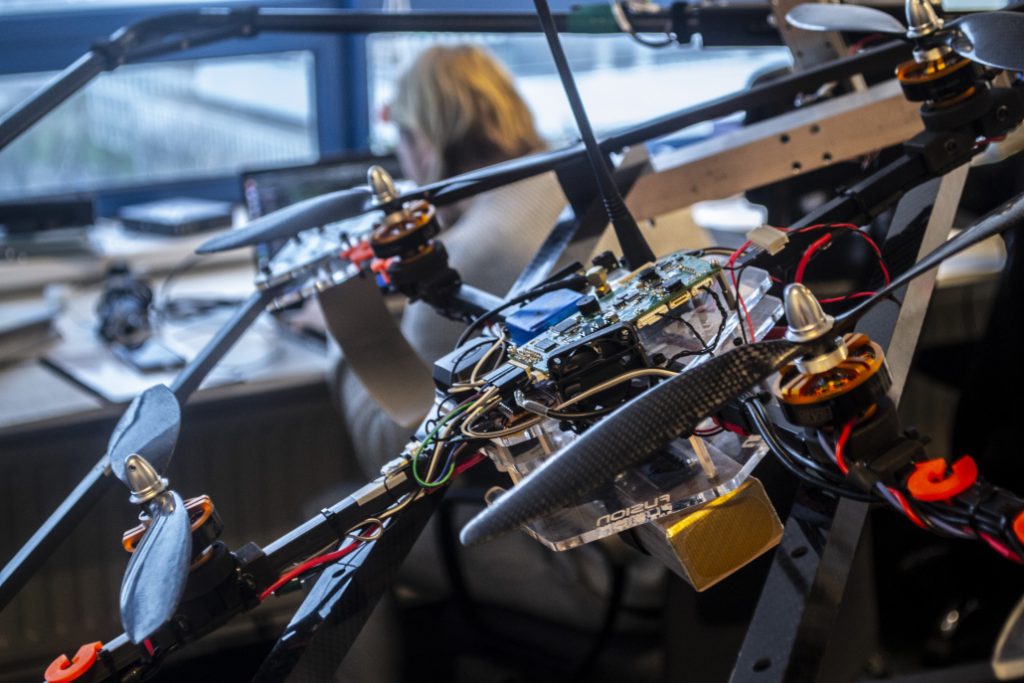
When a young drone business decided to switch from a niche to a more widely applicable feature – you might expect it to be the other way around. But the drone industry, characterised by experimentation, proves once again that anything’s possible. By zooming out, but at the same time focusing on their strengths, Fusion Engineering was able to create more impact than ever.
This summer, Fusion Engineering graduated from the ESA BIC Noordwijk program. In these two years incubated, the startup has changed from wind turbine blade maintenance solution to flight control algorithm for drone controllers – to maximize safety and reduce hazards (like crashes) for dozens of drone applications.
The space link? Like almost every drone, it relies on satellite navigation sensors for accurate positioning and velocity calculations. Next to that, it makes use of several control systems available in existing space technologies. And of course the company applied space based principles in system development, like fail-safe flying.
What’s the story of their business? We talked to co-founder Robert Crone about his journey in ESA BIC Noordwijk, his views on the space industry and the next steps for Fusion Engineering.
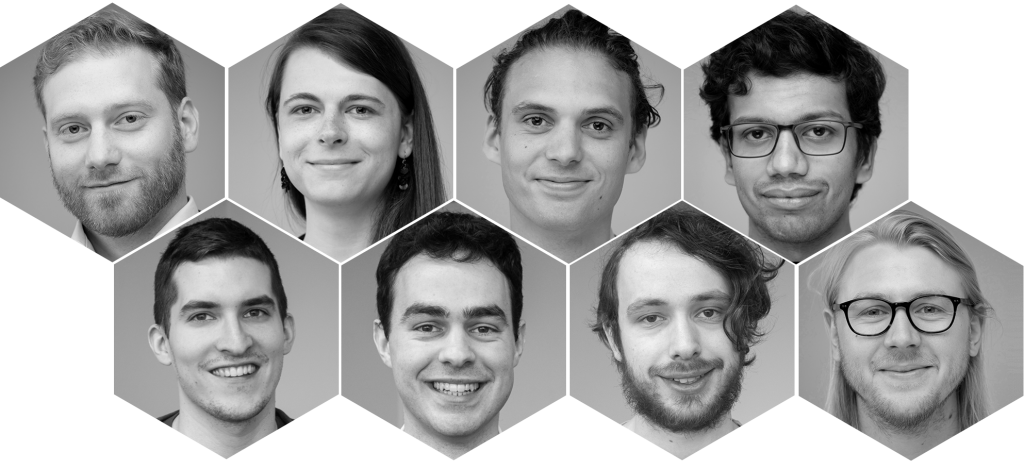
What makes your company so special?
Our technology. We developed a new algorithm at TU Delft, and we’re about to bring it to market. We specifically developed it for drone controllers, because the current tech has already been around for decades.
What did you do the past two years in the ESA BIC program? Can you describe your journey and the change you made?
We had a different name (Drones for Work) and a completely different business model revolving around the automation of routine physical work. So we started with that business case for wind turbine blade maintenance. During the ESA BIC program we found out that, technically, it’s easier said than done. Another case we worked on piqued our interest: while working on a flight controller. We found out that in the drone market, these devices weren’t as available as you’d think. So by developing algorithms for flight controllers, we were able to be relevant for more applications in the drone industry. We zoomed out on the market, but zoomed in on our specialty. That had two advantages: we created more impact and reduced our need for investments.
What was the added value of the ESA BIC program for your company?
There were two extremely important factors: the extensive network of the program and the perspective and experiences of other entrepreneurs in the program. First, there were several drone companies in the ESA BIC network, and other businesses commercially relevant to us. Second, during the so-called Entrepreneurs Coffee Meeting a lot of experiences get shared. It helps to put things into perspective, and really manages your expectations of running a business.

What did you learn from the drone sector – especially in relation to the space industry?
There are technical similarities, for instance the principle of lightweight engineering. Next to that the link with GNSS and positioning is an obvious one. We noticed however that the space sector is of course more conservative than the drone sector; the drone industry can innovate very fast because there’s a lot of experimentation going on.
So what lesson would you like to give other entrepreneurs who are discovering both industries?
It’s something we learned in the ESA BIC program. As an entrepreneur you need to have an optimistic attitude, but it can also lead to underestimating things. So – for a reality check – it really helps to keep talking to experienced entrepreneurs.
What will be the main challenges for your business right now?
For the drone industry, it’s definitely regulations. Early 2021 there will be new European legislation that should be able to make a lot possible. But it’s still unclear how it will be interpreted and maintained here. There’s a lot going on though, so we have faith in the new regulation.
Next is the social acceptance of drones. People need to trust them, as there is fear for privacy invasion. Even in a B2B market as ours, it’s important to realise that in most cases you have to deal with people. For instance a medical transport drone flies over urban areas. In that sense, the offshore business case we worked on earlier is easier to execute. So per case you can make exceptions with risk payoffs, but you have to settle with the government for that.
What has been the greatest challenge due to COVID-19? And how are you going to solve it?
In terms of investments we noticed that the general attitude among investors was a waiting one. They more than ever want a good deal. For us it meant an investment got delayed several months. But we got a ‘corona bridging loan’ from the government, so we got that covered.
Next to that, conferences and trade fairs were a big source of commerce for us. The online alternative, actively seeking personal contact, isn’t easy. We solved that by focusing on our online presence with online marketing and content creation.
Then there’s remote working. Testing our solution requires us to be at our workshop, we can’t do it solely by working from home. But within our team, some are more comfortable working remotely than others. As a solution we connected the hardware settings to the internet, so everyone in the team is able to test our hardware online.
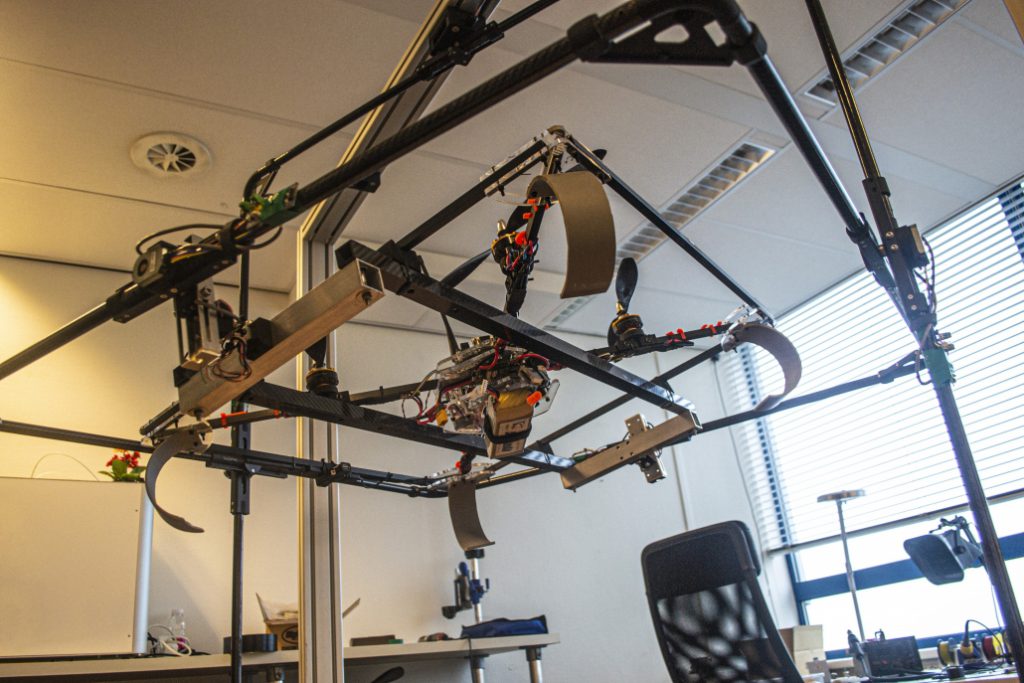
What are you working on right now and what does the future hold for Fusion Engineering?
Our first version of the controller has just been delivered. We are on our way of reaching our investment milestones thanks to two upcoming demo projects. 2021 will be the year where we take the next step in commercialisation. In the future we want to be the go-to company for flight controllers, within five years we want to become a household name in the drone industry.
After graduation, we keep in touch with our alumni companies, as they are an invaluable part of our space business network. Want to be part of the community, and build a space based business as well? Then check out our ESA BIC incubation program.
